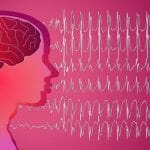Alzheimer’s Disease is named not for the first confirmed patient, but for the doctor that initially identified it. A German woman who was experiencing significant cognitive impairment was examined by Dr. Alzheimer in the early 20th century. After her death, Dr. Alzheimer autopsied her and identified the characteristic plaque on her brain medical research continues to focus on better understanding. But a recent review of Dr. Alzheimer’s autopsy notes is causing some researchers to look at something that hasn’t been as closely studied up to now.
Dr. Alzheimer found changes in the arteries that fed his patient’s neurological tissue. These hardened arteries certainly were a factor in how much blood flow to the brain the patient had. While atherosclerosis is often considered a cardiac issue that manifests in the torso, any artery can be susceptible to narrowing and reducing free flow of blood through it. Some research is beginning to be focused on Alzheimer’s patients circulatory systems because dementia, the key symptom of advanced Alzheimer’s, can be caused by reduced oxygen in the brain. Especially in the elderly, normal neurological function can be seriously affected if the brain can’t stay well oxygenated. This avenue of study may be promising for Alzheimer’s patients since there are treatments that can relieve hardened arteries, and reduce the cognitive symptoms.
New Alzheimer’s research is looking at atherosclerosis; it may offer relief for your loved one #HealthStatus
Follow HealthStatus
Tweet Now
Key Points:
- 1Atherosclerosis is a disease of the body, where fatty plaques caused by cholesterol, build up and clog the arteries.
- 2Those Alzheimer’s patients with worse hardening of their arteries declined quicker.
- 3This research lends to the belief that cutting back on foods high in cholesterol as well triglycerides can help those patients.
See the original at: https://nutritionfacts.org/2017/12/26/hope-for-alzheimers-patients/








Reply